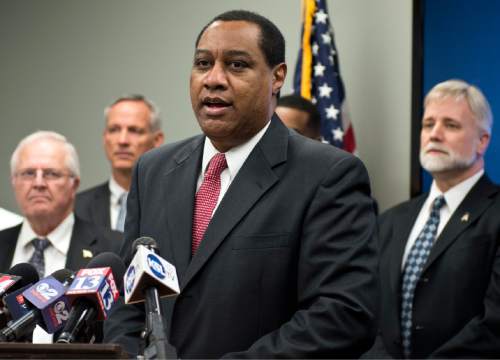This is an archived article that was published on sltrib.com in 2015, and information in the article may be outdated. It is provided only for personal research purposes and may not be reprinted.
Legislators, at least most of them, decided this year that a deal is a deal.
Despite numerous attempts to overturn it, lawmakers stood by last year's deal to reform how political parties choose their nominees.
They killed five bills to overturn, rework or delay a compromise that last year led backers of the Count My Vote ballot initiative to discard more than 100,000 petition signatures they had gathered to create a direct primary.
The compromise, called SB54, allows candidates to qualify for a primary either by gathering enough signatures (similar to a direct primary), or through the old caucus-convention system. It also allows unaffiliated voters to vote in party primaries, which the Utah GOP previously banned in its primary.
Bills unsuccessfully sought to delay it for two years, allow voters to overturn it, or allow convention delegates to choose winners in multi-candidate primaries where no candidate wins at least 40 percent of the vote.
The Utah Republican Party is suing to overturn SB54, claiming it infringes on what it says is a constitutional right to select nominees any way it chooses. It claims it was never party to the compromise, which others dispute, and Party Chairman James Evans lobbied hard to overturn it legislatively.
But Sen. Todd Weiler, R-Woods Cross, said in debate that GOP leaders were attempting "to come back one year later, and to say, 'Oops, we got you. We fooled you. … You threw away those signatures and now we are going to pull the carpet out from under you.' I think it lacks integrity."
Mitt Romney even weighed in on the battle. He sent a letter to leaders criticizing the GOP for deciding to hold a presidential caucus next year — where Republicans would vote in neighborhood meetings — instead of a primary.
He said far fewer people would participate, and urged lawmakers to pass a law requiring a primary instead. Legislation passed to allow but not mandate such a primary. Evans said Romney — a Count My Vote supporter — wrote the letter mostly to hurt efforts to overturn SB54.
The Legislature passed a few other tweaks to election law.
It expanded Election-Day voter registration to also include early voting days. It also passed a law requiring counties that conduct all-by-mail elections to have at least one in-person voting center.



